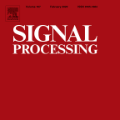In this work, we present a tutorial on how to account for the computational time complexity overhead of signal processing in the spectral efficiency (SE) analysis of wireless waveforms. Our methodology is particularly relevant in scenarios where achieving higher SE entails a penalty in complexity, a common trade-off present in 6G candidate waveforms. We consider that SE derives from the data rate, which is impacted by time-dependent overheads. Thus, neglecting the computational complexity overhead in the SE analysis grants an unfair advantage to more computationally complex waveforms, as they require larger computational resources to meet a signal processing runtime below the symbol period. We demonstrate our points with two case studies. In the first, we refer to IEEE 802.11a-compliant baseband processors from the literature to show that their runtime significantly impacts the SE perceived by upper layers. In the second case study, we show that waveforms considered less efficient in terms of SE can outperform their more computationally expensive counterparts if provided with equivalent high-performance computational resources. Based on these cases, we believe our tutorial can address the comparative SE analysis of waveforms that operate under different computational resource constraints.
翻译:暂无翻译


